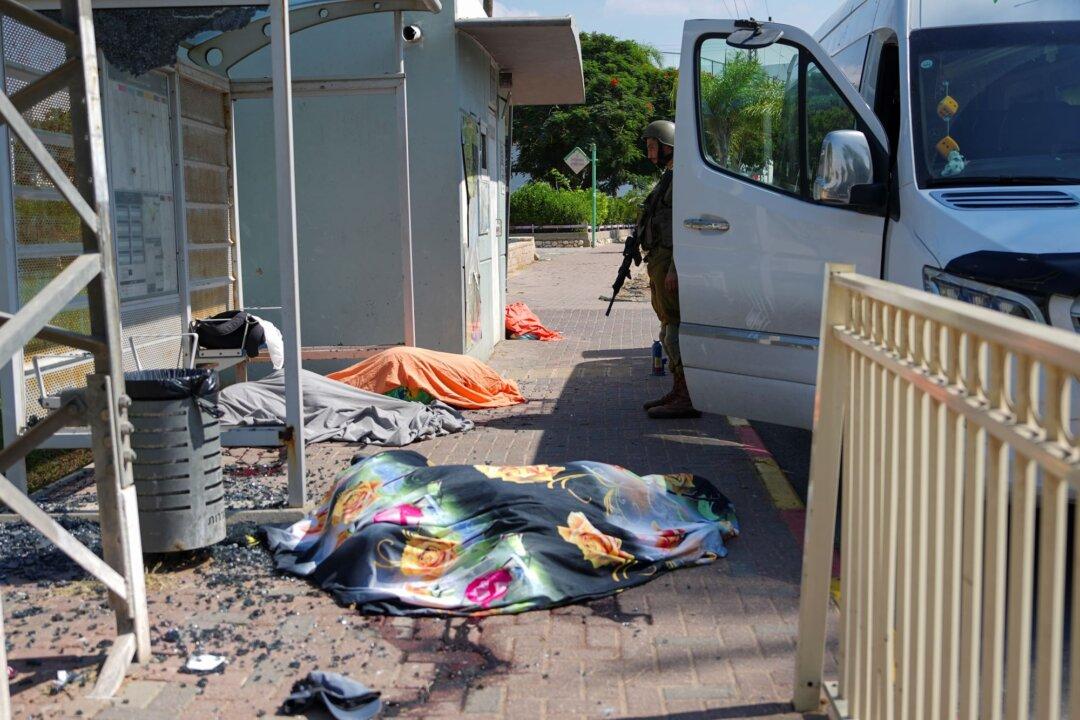Adele Raemer survived seven harrowing hours sheltering in her safe room on Oct. 7 as Hamas terrorists rampaged in her kibbutz a mile from the Gaza border. She says that day, something in her and many Israelis changed.
Those in Kibbutz Nirim have long endured the risks of living close to that frontier. They know that they only have about 10 seconds to get to the safe room in their homes once the sirens start to wail.





